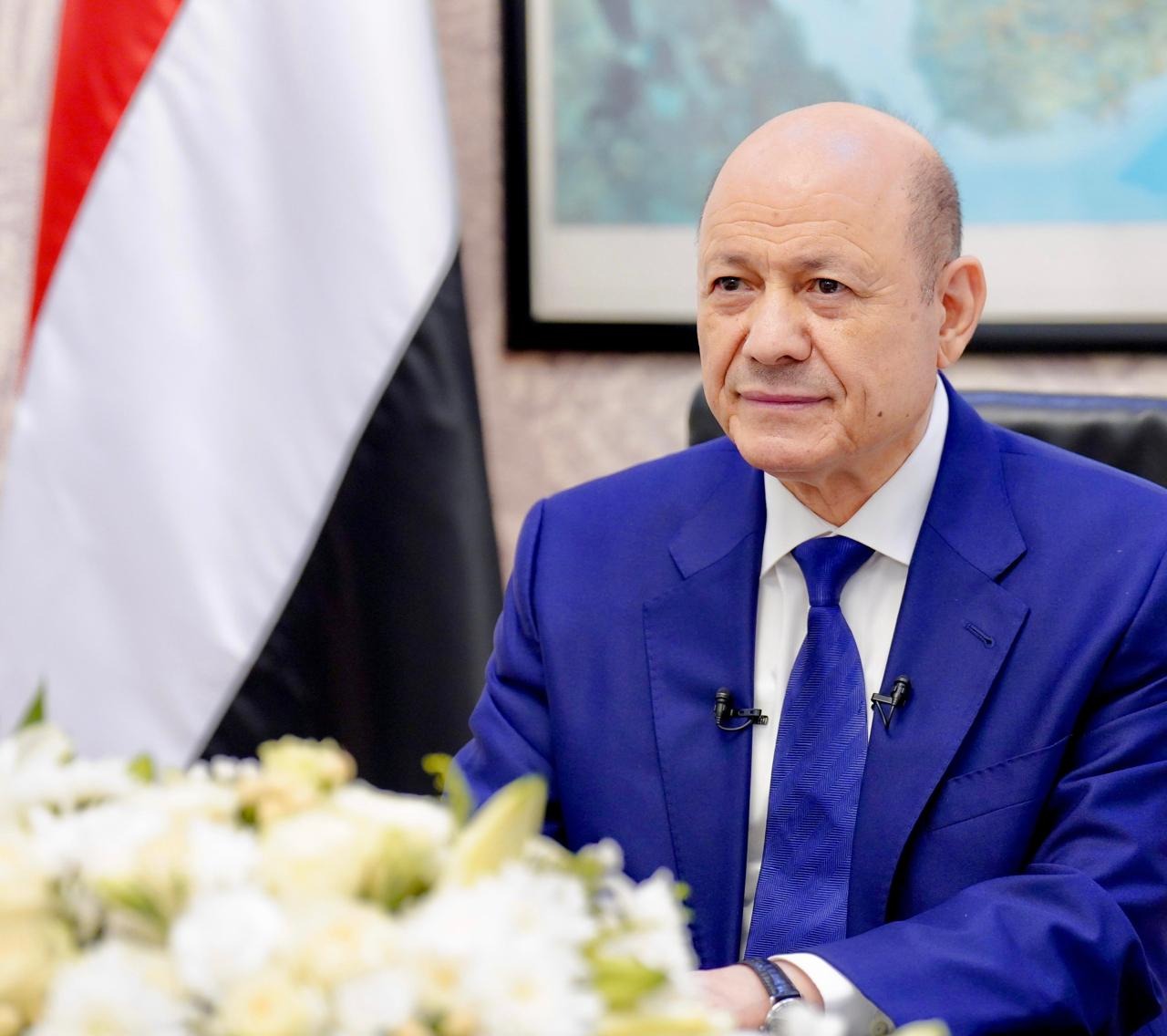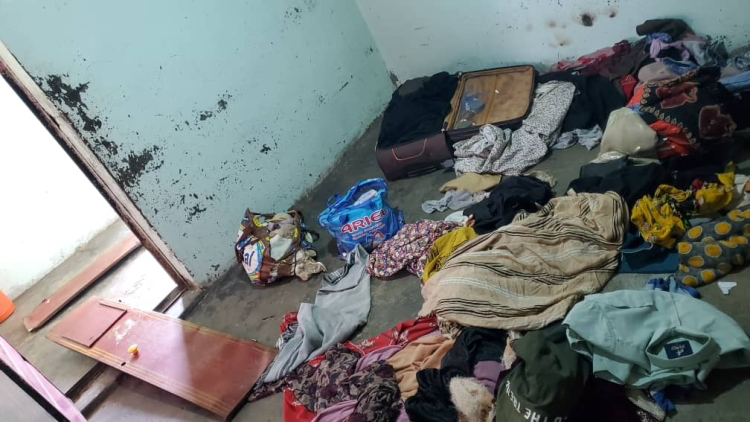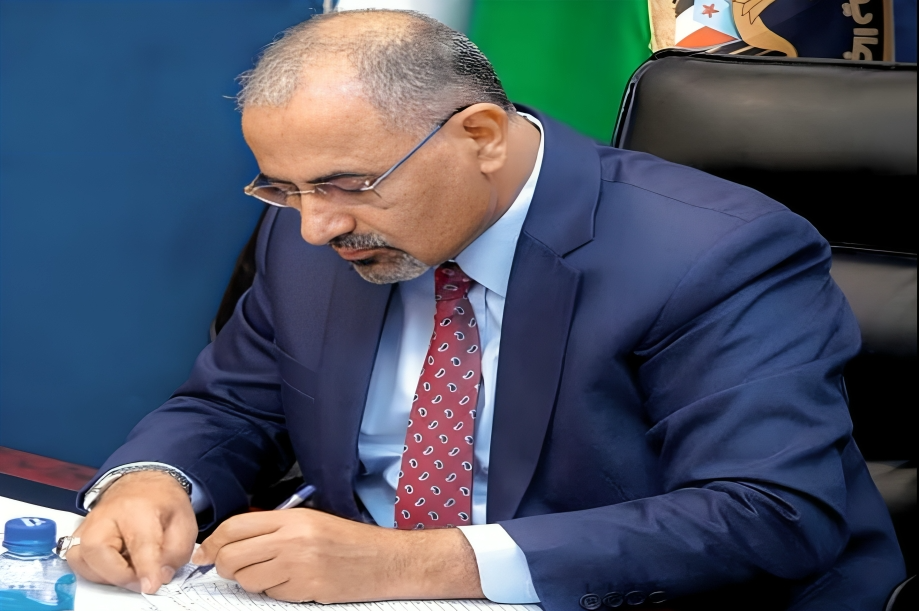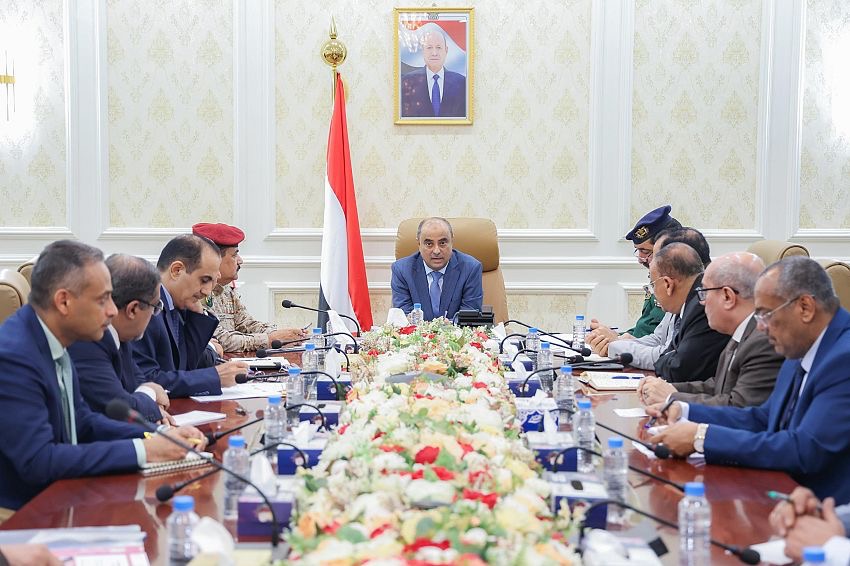
Barran Press
The Chairman of the Presidential Leadership Council, Rashad Al-Alimi, on Tuesday, May 21, 2024, affirmed “full commitment to previous pledges, first and foremost considering the southern issue as a basis for a comprehensive solution.”
In a televised speech on the occasion of the 34th anniversary of the re-achievement of Yemeni unity, he also affirmed “his openness to all options to enable the people to achieve their aspirations, determine their political status, and their economic, social, and cultural development under national, regional, and international references.”
He added: “It is enough that we meet today in the temporary capital, Aden, as a unified, consensual leadership, to confront the renewed dangers, as our early ancestors did for nearly seven decades of defending the republican system, which has never gone through a more difficult time than it is experiencing now.”
Al-Alimi said, “May 22nd will remain a solemn occasion surrounded by appreciation, and a historical moment worthy of contemplation, learning, and conscious initiative to protect our national consensus and the will of our people, and to ensure broad participation in decision-making, without exclusion or marginalization.”
He expressed his pride that “this occasion comes when the Republican Alliance has become stronger and more united around its major national goals, in which the people are victorious due to the sacrifices of heroes from all military formations and popular resistance.”
He stated that unity “represented in its essence an integrated civilizational project, based on a set of lofty principles, the most important of which are: strengthening national unity, broad partnership in power and wealth, achieving justice and equality, and the rule of law.”
He continued: “Just as the free Yemenis in the north and south of the country cling to the contents of this renaissance project, they strongly refuse to empty it of its national, political, and moral content, and for it to become merely a shadowy slogan that hides the tendency to tyranny and the monopoly of power and wealth.”
The truth is that whoever looks closely at the movement of history realizes that Yemeni unity and the merits of the southern issue are two sides of one idea and one dream... two sides of a pluralistic republican Yemen and a system based on justice, equality, and the rule of law.
The Chairman of the Leadership Council stressed that “the best way to celebrate national holidays is to stand seriously to face the existing challenges and work to address the issues of the present and the requirements of the future without getting immersed in the differences and conflicts of the past, but rather turning it into an opportunity for review and evaluation, and moving forward towards a better future.”
He added: “It is no secret to anyone that today we stand before a pivotal moment at all local, regional, and international levels, a moment rich in opportunities but also full of challenges. It will remain the decisive factor in our ability to achieve our national goals. It is the extent to which we adhere to the unity of the class and the unity of purpose.”
He stressed, "The unity and readiness of the armed and security forces in all their formations, to deter any hostile adventure. Over the past weeks, the coup plotters have bitterly tested some of the valor of our forces stationed on various fronts."
Services and economy file
He pointed out that “the current crisis, at the service and economic levels, was not only the result of government negligence, otherwise it would have been easy to approach it,” adding, “rather, its fundamental cause lies in the behavior of the militias that targeted oil facilities, removing them from export two years ago, and then went to... Threatening commercial ships in our territorial waters, which has exacerbated the economic burdens on our country, its people, and its government.”
However, Al-Alimi says that what he described as “Houthi terrorism” does not absolve them of the responsibility to work to improve conditions and end the chronic energy crisis, and before that, to appreciate the patience of our citizens who bear the brunt of the suffering.
In this context, he talked about “two paths” that they are working on to resolve the service issue, most notably electricity. “The first is the emergency path that was directed to be undertaken by the relevant executive authorities through urgent solutions to secure the fuel necessary to operate the existing electrical system, increase it's generating capabilities, and respond immediately to any emergency.” ".
As for the second track that Al-Alimi talked about, it is “the electric generation track that the Presidential Leadership Council has been working on for two years with the government and local authorities to develop a comprehensive strategy aimed at finding radical solutions to the electricity problem with the support of the coalition to support legitimacy led by Saudi Arabia and the UAE.”
He pointed out that “an imminent breakthrough in service will come from the sustainability of fuel supplies, and the completion of the entry of 120 megawatts into generation next month in Aden Governorate from the renewable energy station, in addition to the entry of 25 megawatts into generation earlier in the Al-Mukha District, in Taiz Governorate.”.
He continued: “Work is also underway to establish a renewable energy station with a capacity of 56 megawatts in Shabwa Governorate as a first phase, and 50 megawatts in Al-Khawkhah and Hays, while preparations are being made to build electrical stations in Hadhramaut with a capacity of 25 megawatts, another in Taiz with a capacity of 30 megawatts, and a third in Al-Riyah in Ras Al-Ara.” With a capacity of 100 megawatts.
He continued, saying: “The government is also working to increase the generation capacity of the President station in Aden to more than 200 megawatts after the dilapidated distribution network was completely renewed during the past two years, while the Kuwaiti brothers support a project to restore maintenance and rehabilitate the Marib gas station with an amount of $40 million.” “In addition to appreciated contributions from the local authority in the governorate.”
Peace path
Rashad Al-Alimi stressed that the Presidential Leadership Council “has not and will never abandon its strict approach to resisting the Houthi front project, supported by the Iranian regime, on the path to restoring state institutions and overthrowing the coup.”
Regarding the position on peace, Al-Alimi listed four principles that he said the Presidential Leadership Council repeatedly stresses, namely “adherence to national, regional, and international references, especially Resolution 2216.”
The second principle is to “emphasize not to prejudice the legal and political status of the member state in the United Nations, and third: the comprehensiveness of any peace process and its protection by regional and international guarantees, including the presence of the southern issue, in any future consultations.” Fourth: The continuation of the policy of openness to all mediation efforts related to alleviating the suffering of our citizens and securing their interests and decent livelihoods.
Tomorrow, Wednesday, May 22, 2024, Yemenis will celebrate the 34th anniversary of the re-achievement of Yemeni unity in 1990, amid popular preparations to revive it in a number of Yemeni governorates, and an international movement to end the war and bring peace.
On May 22, 1990, the two parts of Yemen were united, after the success of the “September 26, 1962 Revolution” against the Imamate system in the north of the country, and the “October 14, 1963” revolution against British colonialism in the south. Yemeni unity was considered the culmination of the struggles of the Yemeni people against tyranny and colonialism, and the fulfillment of their aspirations for life and stability after years of division.
The Yemeni people’s celebration of the 34th anniversary of the National Day of the Republic of Yemen (May 22, 1990) comes in light of a humanitarian crisis that is the worst in the world, according to the United Nations, with the war continuing for the tenth year in a row, and calls for a retreat from national unity.
It also comes in the wake of intense regional, international, and UN movements to push the Yemeni parties to sign an agreement to end the war and pave the way for a lasting and comprehensive peace in the country.





